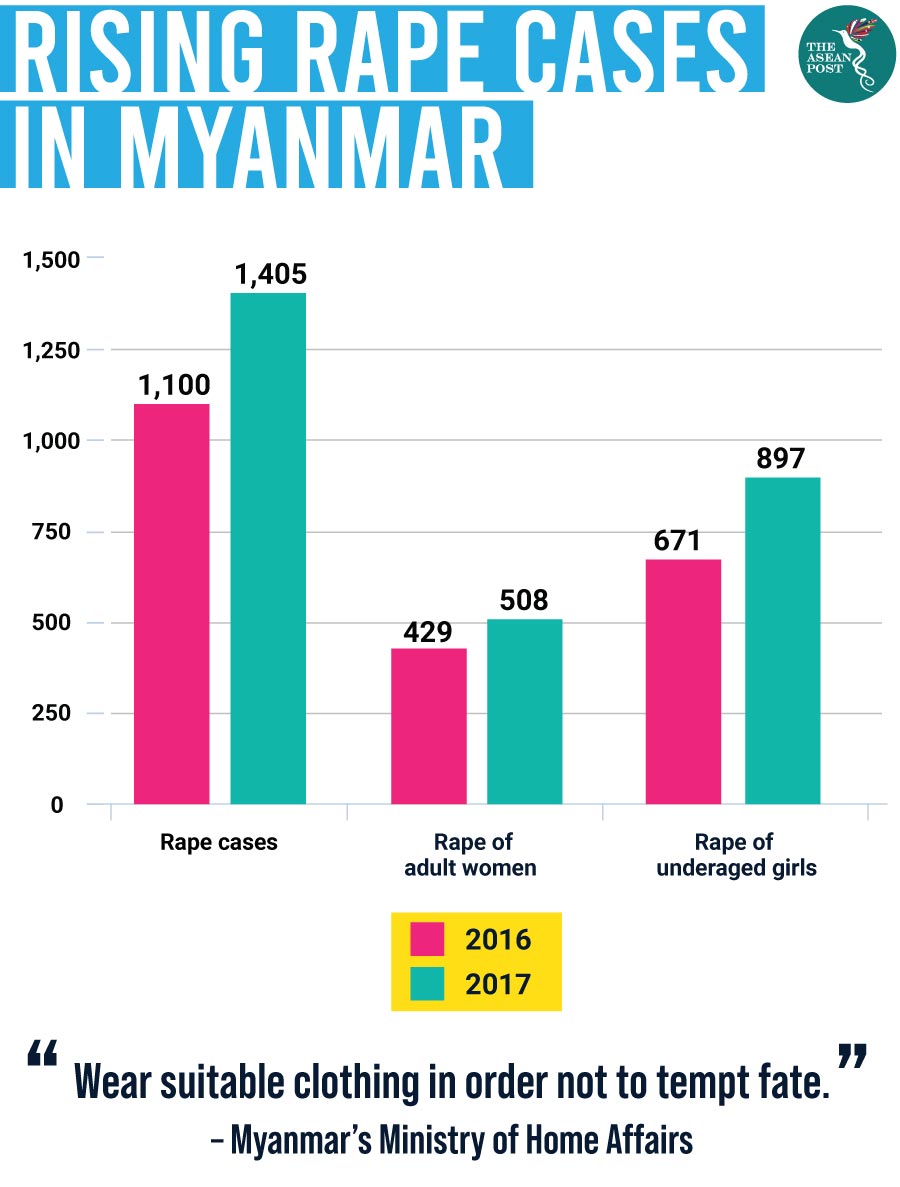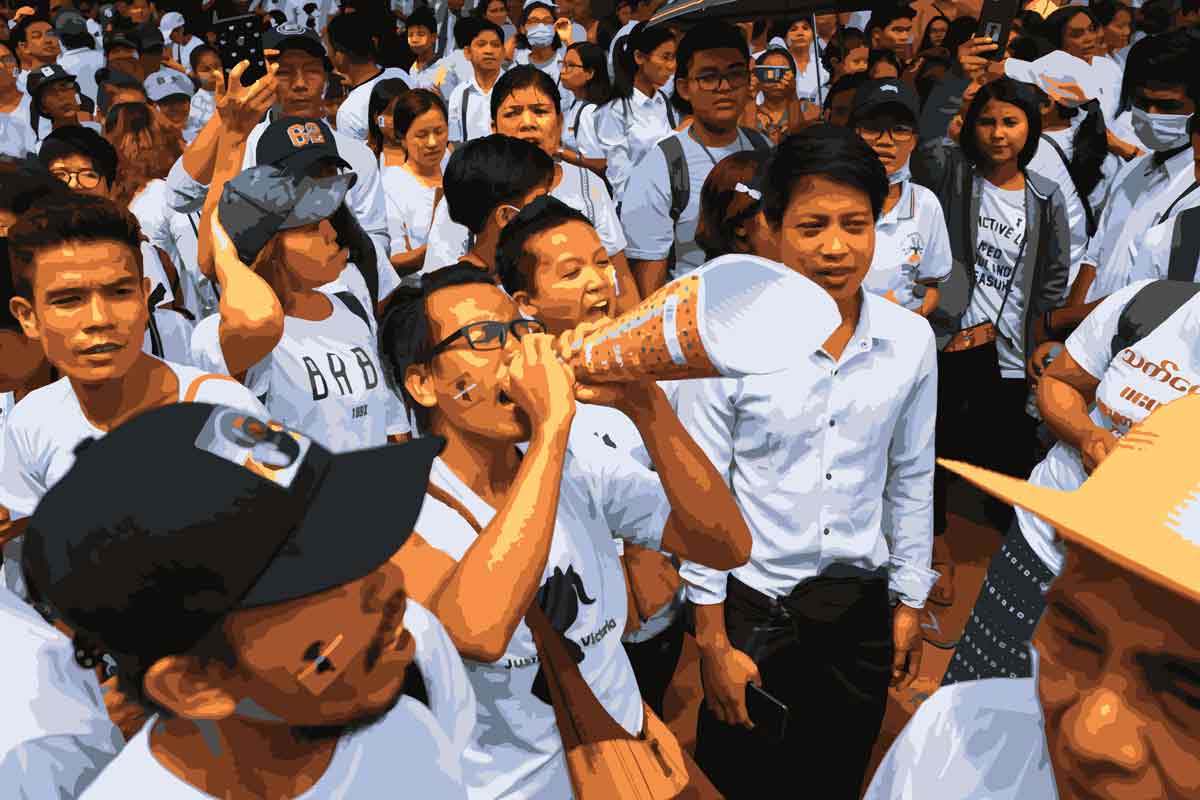“Traffickers target youths who have bad reputations or low moral character more than youths who don’t understand.” This is what Myanmar’s Ministry of Social Welfare, Relief and Resettlement Director General U Win Naing Tun was quoted as saying recently when talking about human trafficking.
Most human trafficking in Myanmar involves the selling of women as brides to China.
Naing Tun’s words seem, at least at first glance, to have a tinge of victim-blaming in them. Especially as he went on to explain that unlike youth of “low moral character”, other youths could testify against their human traffickers in court, “so they avoid them”.
While it would be unfair to accuse Naing Tun of victim-blaming with such limited information available on the statements he made, it is also true that victim-blaming has been a rampant practice in Myanmar. Even people of authority have been reported as practicing victim-blaming, especially concerning rape.
Back in 2017, in an interview with local news, Lunn Aung San, the head of police in Ah Pyauk, Taukkyi township, said that most cases of sexual assault or abuse arise due to the woman victim’s choices.
“If women are not out on the public scene, these cases will not happen,” he said. “But they have been abused depending on what they’re wearing, what time it is and where they are.”
As far back as 2014, in a rape trial in Pathein, the lawyer of the defendant argued that he could not have controlled himself because of the short skirt the victim was wearing. He got off with a reduced punishment, and only one member of parliament – Hla Myat Thwe, a woman MP for Yegyu 2 – publicly criticised the decision.
Cultural
Previously, The ASEAN Post published an article regarding the practice of victim-blaming in Cambodia. In that article, it was noted that Cambodia’s “Chbab Srey” may have had something to do with the problem of discrimination against women in Cambodia. There may also be something similar happening in Myanmar.
Triangle Women’s Support Group director Ma Khin Lay says the societal norm of victim-blaming is passed down from older generations. She pointed to traditional Myanmar proverbs such as “bai kaung kyauk hpi” (keep a proper sense of decorum) and “mainma do eindayeh shwe pei lo ma ya” (The modesty of women is priceless). She claims that this is proof that the practice of victim-blaming is deeply embedded in Myanmar culture.
“Women have always been told to behave according to these proverbs. We should apply them sometimes, but we should also reject these old ways. Women have suffered due to these proverbs,” she was quoted as saying.

“Death to rapists”
In February 2018, Myanmar’s Ministry of Home Affairs released its previous year’s statistics on rape cases in the country. The ministry reported that rape cases rose from 1,100 in 2016 to 1,405 in 2017. This includes a rise in rapes of adult women from 429 to 508 and in rapes of underage girls from 671 to 897.
The Ministry of Home Affairs, which oversees the police force, included in its release of the rape statistics a directive to women to “wear suitable clothing in order not to tempt fate.”
The statistics were released following the infamous case in which 26-year-old Food and Drug Administration staffer Shwe Yee Win was raped and murdered by a taxi driver on 20 January, 2018. The case also sparked the “Death to rapists” campaign in which several protests were held calling for the death penalty for convicted rapists including those who were convicted in the past.
Women’s groups, including the Women’s Protections Organization (also known as the Women’s Safeguarding Team) staged a protest outside the courthouse where the suspect, taxi driver Myo Zaw Oo, was on trial on 8 February.
A similar protest was held in Madaya Township, Mandalay Region, on 18 February, after a local villager was charged with the rape and murder of a two-year-old girl. The father of the victim called for rapists to be executed publicly.
Even activists who do not support the death penalty for rapists seized the opportunity to speak out against victim-blaming and sexual repression.
“Can we truly admit to ourselves why such rapes happen? It is because of our culture, a culture of not talking about sexuality openly. We have been told since our teenage years that talking about sex is not polite and that we should not speak out…The mother won’t talk to her daughter, and neither will the school. We were not taught in our teens about sexuality and reproductive health or how to deal with those feelings,” Daw Yin Myo Su, a Shan State-based educator and founder of Inle Heritage, was quoted as saying.
It is unlikely that the Myanmar government will end up using the death penalty for rapists. The government does, however, need to solve the crisis and end the practice of victim-blaming once and for all. After all, in Myanmar’s most recent infamous rape case involving a two-year-old nicknamed Victoria, can the government and its supporters say that it was the toddler’s fault for “tempting fate”?
Related articles:
